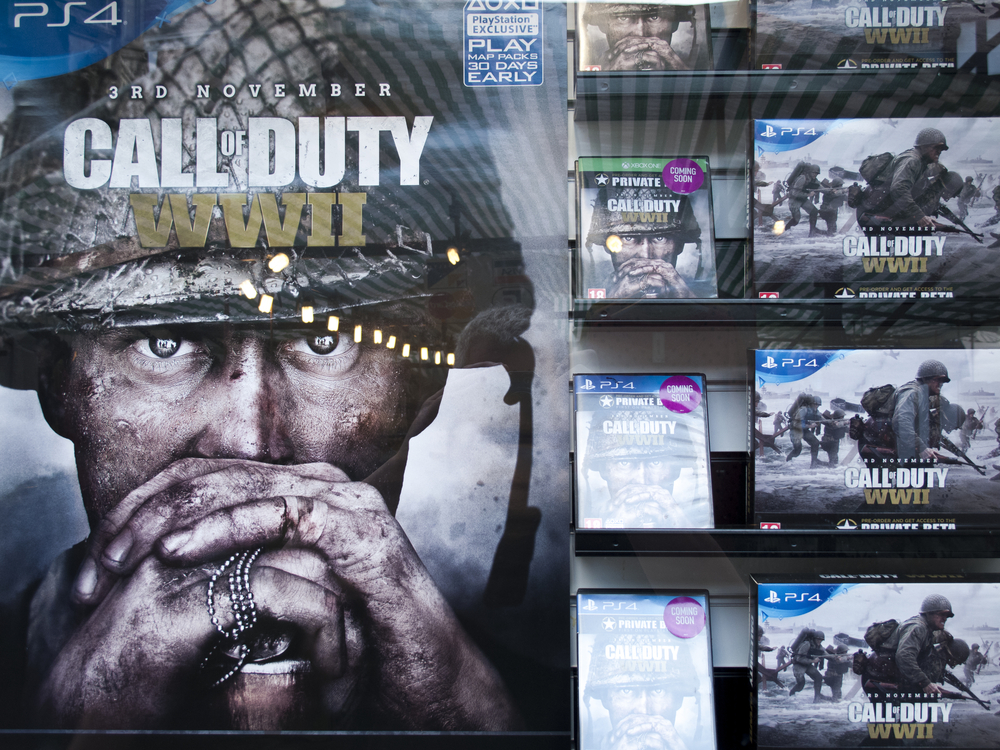Microsoft One Step Closer to Buying Call of Duty Maker After Court Ruling
In a stunning courtroom victory, Microsoft has emerged triumphant in its high-stakes legal battle against the US Federal Trade Commission (FTC). The outcome paves the way for Microsoft’s ambitious acquisition of gaming behemoth Activision Blizzard, known for its popular title Call of Duty, with a whopping price tag of $68.7 billion.

Last week’s courtroom showdown revolved around the FTC’s bid to secure an injunction, aiming to temporarily halt the deal for further investigation. However, it became clear that the case held much more significance—it served as a litmus test for the overall viability and success of the acquisition.
Had Microsoft faced defeat in court, its endeavor to acquire the publisher responsible for World of Warcraft, Diablo 4, and Candy Crush would have been left in dire straits. The prospect of such a setback had Microsoft acknowledging the potential demise of the deal. Yet, today’s decision dramatically reinvigorates Microsoft’s hopes of sealing the agreement, with a mere handful of days remaining until the fast-approaching July 18 deadline—despite the lingering opposition from the UK’s Competition and Markets Authority (CMA).
Moreover, in a momentous twist of events, Microsoft’s President, Brad Smith, revealed that the FTC’s favorable ruling has prompted Microsoft and the CMA to find common ground. They now jointly recognize that a “stay of litigation” is in the public interest, fueling Microsoft’s optimism of a breakthrough in the United Kingdom.
Smith’s statement today, shared with Eurogamer, emphasized the shifting focus back to the UK: “After today’s court decision in the US, our attention turns to the UK. While we disagree with the CMA’s concerns, we are actively considering modifications to the transaction that could address those concerns in a manner acceptable to the CMA. To expedite this process, Microsoft and Activision have aligned with the CMA, jointly submitting a request to the Competition Appeal Tribunal for a stay of the litigation.”
Previously, Microsoft had expressed its intention to embark on an arduous path of appeal against the CMA’s decision, a process expected to consume several months. Even if successful, it would grant Microsoft the opportunity to resubmit the deal for reconsideration by the previously hesitant CMA. The CMA’s dissenting stance placed the UK in the global spotlight as an outlier in its evaluation of the merger—an aspect that did not escape the attention of the country’s politicians, who questioned whether the UK’s business environment remained “open for business.”
Last month, Bloomberg reported that Microsoft had even contemplated extreme measures, including the complete withdrawal of Activision Blizzard from the UK, in a bold attempt to circumvent the country’s block on the deal. The specifics of such an outcome, and the subsequent sale and operation of Activision Blizzard games in the UK, remain uncertain. However, the FTC’s decision today raises these questions once more, as Microsoft prepares to navigate the final stages of its triumphant journey on home turf.
Notably, the only other significant regulatory hurdle, the European Commission of the European Union (EU), eventually granted approval to the deal after being satisfied with the concessions made by Microsoft to facilitate the acquisition.
The FTC’s defeat today can be attributed to several decisive factors. Court documents revealed that the FTC failed to convince Judge Jacqueline Scott Corley of any credible indication that Microsoft would withdraw Call of Duty from PlayStation consoles following the acquisition by Xbox. The ruling explicitly stated that no internal documents or communications contradicted Microsoft’s publicly stated commitment to keeping Call of Duty available on PlayStation and Nintendo Switch. The judge’s decision also acknowledged that while Sony, a key player in the gaming industry, opposed the merger due to potential negative impacts on PlayStation, it would not necessarily harm PlayStation owners. With the emergence of cloud gaming, players would have the freedom to enjoy Call of Duty on their platform of choice, including the intended expansion to the Nintendo Switch.
Addressing the CMA’s concerns regarding cloud game streaming, the judge was swayed by Microsoft’s argument that the acquisition of Activision Blizzard would actually increase consumer choice. The ruling emphasized that prior to the merger, Activision’s content was not accessible through cloud-streaming services, but post-merger, several of Microsoft’s competitors in the cloud-streaming market would gain access to this content for the first time. Consequently, the merger was seen as enhancing, rather than diminishing, competition in the cloud-streaming arena.
In summary, Judge Corley concluded that this highly scrutinized acquisition, hailed as the largest in tech history, had undergone meticulous examination. The resulting commitments made by Microsoft, documented both publicly and in court, affirmed that Call of Duty would remain available on PlayStation for the next decade, on par with Xbox. Additionally, Microsoft had struck an agreement with Nintendo to bring Call of Duty to the Switch. Furthermore, multiple agreements had been forged to extend Activision’s content to various cloud gaming services, a first of its kind.
“The Court finds the FTC has not shown a likelihood it will prevail on its claim this particular vertical merger in this specific industry may substantially lessen competition. To the contrary, the record evidence points to more consumer access to Call of Duty and other Activision content. The motion for a preliminary injunction is therefore DENIED,” wrote Judge Corley, solidifying the victory for Microsoft.
In the wake of the FTC’s decision, Phil Spencer, the head of Xbox, expressed gratitude to the court and reaffirmed Microsoft’s commitment to expanding gaming access and choice for players across the globe. He emphasized the signing of multiple agreements to make Activision Blizzard’s games, Xbox’s first-party games, and Game Pass available to an even wider audience.
The legal triumph triggered jubilation among Activision executives as well. Lulu Cheng Meservey, an executive at Activision, took to Twitter to laud the court’s impartiality and recognition of the deal’s benefits for gamers, applauding the embrace of healthy competition over market protectionism.
As the dust settles, Microsoft and Activision celebrate their courtroom victory, bolstered by the prospect of a promising future for the gaming industry as their union inches closer to fruition.



